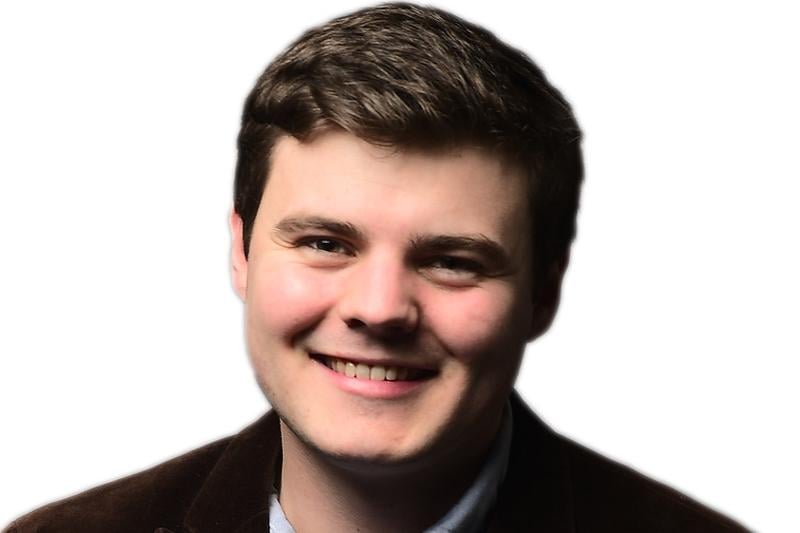Kirkland: After Baltimore, we must face inequality head on
May 4, 2015
Say what you will about the protests in Baltimore over the past few weeks (or, better yet, let Ta-Nehisi Coates say it for you), but one thing is clear: In one key respect, they worked. If the goal of a protest movement is to shed light on an injustice and bring national exposure to a problem, they succeeded.
The injustice is the death of Freddie Gray and the immediate problem is police brutality. In place of justice denied in the cases of Michael Brown and Eric Garner and Tamir Rice, there is hope that Gray’s family will see justice served. On Friday, six Baltimore Police Department officers were charged for their role in his death.
But the problem in Baltimore, just as in Ferguson and Staten Island and Cleveland, runs deeper than police brutality. The deeper problem is about inequality. It’s about the fact that the median wealth of white families in America in 2013 was 13 times the median wealth of black families and that middle class wages have stagnated while 93 percent of additional created income in 2010 went to the top one percent.
Inequality is a familiar story. We’ve read the books and seen the documentaries and we can see it on graphic display in the devastated Baltimore neighborhood of Sandtown-Winchester where Gray was from.
Our politicians have read the statistics and heard the stories, too. In the wake of the Baltimore protests, Hillary Clinton, leading candidate for the Democratic presidential nomination, devoted her first major policy speech of the campaign to an impassioned condemnation of criminal justice inequality in America today.
Republican candidates have also turned their sights on inequality, focusing specifically on the inequality of opportunity. In February, likely candidate for the Republican nomination Jeb Bush gave a speech in Detroit titled “Restoring the Right to Rise in America.” The previous month, at a policy debate in California, Marco Rubio, Rand Paul and Ted Cruz all agreed that inequality represents a signature issue of our time.
Prominent academics, like economists Robert Reich and Joseph Stiglitz, have long been sounding the economic inequality alarm. Stiglitz’s 2012 book “The Price of Inequality” described a series of market manipulations and structural transformations that have piled wealth into the overflowing coffers of the already rich. Thomas Piketty’s blockbuster “Capital in the Twenty-First Century” offered a hugely influential model showing that the rate of return on capital is greater than the rate of economic growth in the long term, resulting inevitably in vast inequality that destabilizes the whole system.
Again, we all know about inequality. The protests in Baltimore prevent us from making any feeble attempts to sweep it under the rug. But what on earth can we do about it?
If you really stop and listen to what Hillary Clinton or Jeb Bush are saying or read what economists like Stiglitz or Piketty are writing, it’s hard to come away with any sense of optimism.
Clinton’s speech addressed the problem of police brutality by proposing the simple and effective policy of issuing body cameras to police forces nationwide. But when she spoke on the problem of economic inequality, which she has made one of her central campaign themes, she offered virtually zero policy solutions.
She’s not alone. In the sentences that directly followed indictments of inequality, Bush, Rubio and Cruz reverted back to vague economic plans that offer few meaningful ideas for solving the central problem.
Additionally, some of the same academics who sounded the alarm don’t seem to have many good answers either. After hundreds of pages of compelling data describing the growing problem of inequality, Piketty’s suggested solution is an utterly unfeasible global capital tax.
Thanks to the protesters in Baltimore and elsewhere, we’re having conversations about how inequality manifests itself in America today. What we need now is a more fruitful discussion of how to fix it.
At this point, the policies we identify need to be radical, if not revolutionary. I’m all for raising the federal minimum wage and expanding union membership, but those steps alone aren’t going to restore economic mobility or erase the 20-year life expectancy gap between inner-city Baltimore and its adjacent neighborhoods.
The depth of inequality necessitates deep reform and hard-hitting policy changes. We need to put ideas on the table like drastically increasing the top marginal tax rate (most Scandinavian countries hover around 60 percent), passing full employment legislation, doubling or quadrupling the Earned Income Tax Credit, expanding public sector jobs programs or actually voting for Bernie Sanders for president.
To salve the deep wounds laid bare in Baltimore, we need to broaden our focus to system-wide solutions and real structural reforms. At the very least, we need to foster a more creative conversation about what can be done to shrink the huge gap that allows some communities to prosper while others remain mired in poverty, injustice and brutality.
William Kirkland is a Weinberg junior. He can be reached at williamkirkland2016@u.northwestern.edu. If you would like to respond publicly to this column, send a Letter to the Editor to opinion@dailynorthwestern.com.



